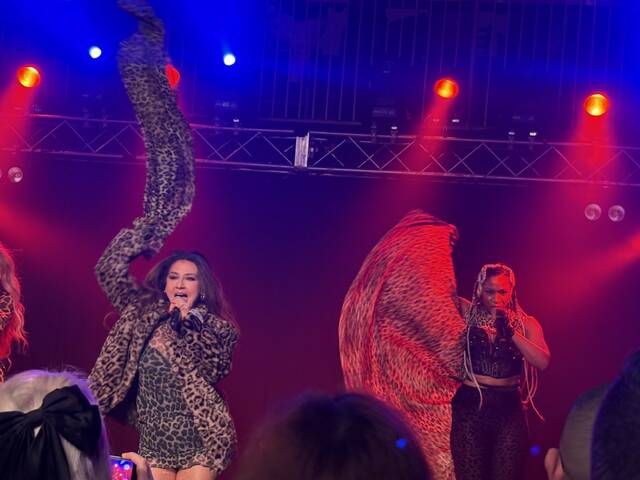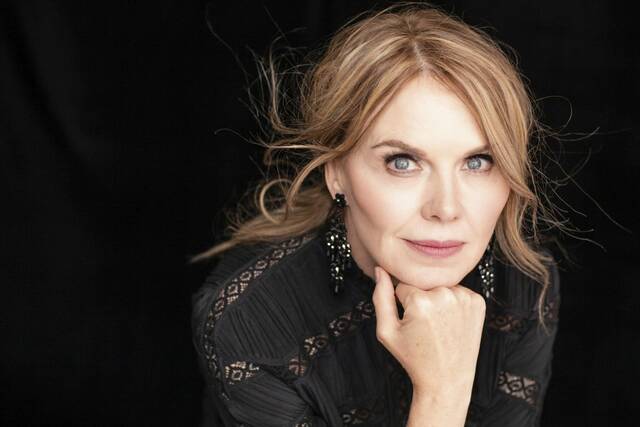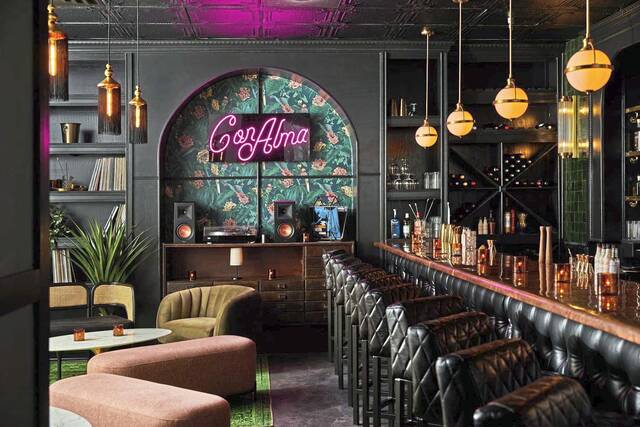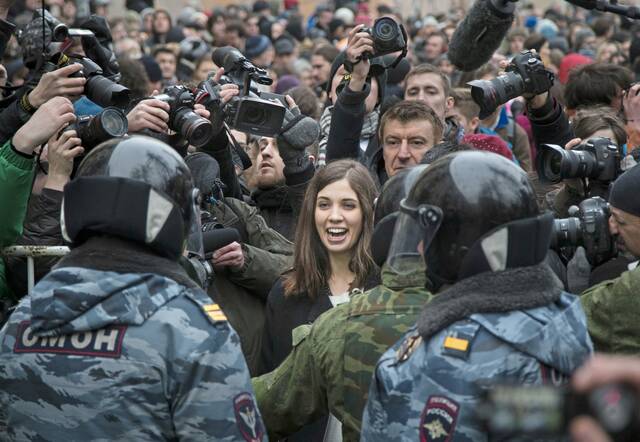Midge Ure has been playing music professionally for more than 50 years, so hitting the studio or going on the road for a North American tour at age 70 is as natural as “blinking or breathing.”
“At the time, whichever one you’re doing seems to be the best one to do, the better one to do at the time. If you do it for too long, you start to kind of hanker to do something else. And I only do two things,” he said last month in a Zoom call from Portugal.
“So when you’re touring it’s great, and it’s good fun, and it’s something different every day, and the camaraderie and all of that stuff is fabulous. But then you end up, by the end of the tour, you think, I’ve been playing the same songs for six weeks and I’m getting a bit bored. And you can’t get bored with playing the songs because an audience can sense that your heart isn’t in it.
“But you hanker to do something new. And then you get back in the studio, and you’re in a little environment where you’re on your own and you start to, after a while, think it’d be great to hang out with my friends again.”
So the cure seems seems obvious…
“Short tours, yes, and write new material quicker,” he said with a laugh.
Ure, the former frontman of the influential British new wave band Ultravox, will be in town on Aug. 15 when his Band in a Box North American tour hits Jergel’s in Warrendale.
The Band in a Box features Ure on electric guitar, synthesizer and vocals alongside his longtime keyboard player, Charlie Round-Turner, handling loops, samples and preprogrammed drums. The idea originated when he was asked to join Howard Jones (of “No One Is To Blame” fame) on tour a few years ago.
“And I had to be very Scottish about it and break it down to its component parts and say, look, you were very commercially successful in America. I wasn’t, and people didn’t really understand Ultravox, what we were doing,” he said. “We were a bit ahead of the curve maybe or whatever. College radio played us, but that was about it. Trying to get normal radio, regular radio to play us was very difficult. I said, ‘The fees you get to do this are radically different from the ones I get to do this.’ So he kept going on about it, saying, ‘If you can’t bring a band, how can you do it?’”
So Ure got to work, using a computer loaded with drum loops and samples, combined with the music he’s playing live to handle his solo songs and tracks from his time in Ultravox and Visage, a British synth-pop band. The months of prep work, getting all the technology right, is seemingly working.
”I’d much rather do that than standing on stage with just an acoustic guitar. And that’s how I’ve kind of done America the last few tours,” he said. “Because you’re depending on the audience filling in all the gaps. And that leaves an awful lot of gaps if it’s just you and an acoustic guitar.”
In a wide-ranging interview, Ure discussed the radical changes in technology during his career, the lasting influence of Ultravox, the landmark “Vienna” video, the early days of punk rock, his autobiography and whether a concert like Live Aid (of which he was a co-organizer) could work today:
Is it wild to think about how much technology has changed since you first started? It seems like nowadays, if you can imagine it, you can probably make it happen musically.
That’s probably true. Yeah, you can imagine, you can ask AI to make it, and that’s just absolutely petrifying. When we started using synthesizers with traditional rock instrumentation, when I joined Ultravox back in ‘79, none of the machines would talk to each other. There was no way of a drum machine connecting to a synthesizer and understanding the same language. So when we toured, even in our infancy, our first few tours of America, everything we had, everything electronic we had, had to be altered and adapted. Therefore, you had to carry a spare.
So in its infancy, it was really tough work. But even with the end of the day with the technology that was available when Ultravox, after we did Live Aid, was the last time we played together as a four-piece band and technology had changed, we still carried 20 odd keyboards and we still took five hours to do a soundcheck because we refused to use backing tracks and tapes and whatever. But now, of course, yes, you can achieve the same that would, you can split those sounds across one keyboard now and have one keyboard doing multiple things. You’ve still got to play it, but you can change the sounds, you can have a cello in one hand, a string in the other, and a synthesizer leading another, and a bass synthesizer and section of keyboard. That enables me to be able to do exactly what we’re coming out to America to do.
Looking back, where do you think the influence of Ultravox is felt in music nowadays?
The weird thing, we didn’t realize it at the time, but house music, which came out of Chicago in the early ‘80s, was influenced by, which I’ve subsequently read, influenced by things like Visage and “Fade to Grey” or Kraftwerk or early Ultravox. They loved the sound that electronic instruments made. So to find out house music was inspired by what we were doing in little clubs in seedy England back in the day was quite something.
But I think technology is a difficult thing, and influences are a difficult thing. It’s hard to say that’s obviously influenced by what we did, but the fact that we took a lot of this stuff out on the road and used them as instruments, not novelty things. It wasn’t a geeky hook for someone to go, I’m going to see that synthesizer band. We incorporated this new instrument in with traditional rock instruments and utilized it in a way.
So influences, musically and maybe technologically, will be out there. I remember The Cars used to come and see us every time we played Boston, and they were very influenced by a lot of what we were doing with synths. So even back then, and that was way back.
The band was influential with its music videos, especially for “Vienna” — music videos weren’t done like that back then.
Music videos weren’t done. We had seen, Queen had done “Bohemian Rhapsody,” but on video. A couple of video clips happened. In fact, we had done a video prior to “Vienna,” which we shot on 16mm film, because we were all interested in cameras and photography and film noir and all of that stuff. So we’d already made a video, which we shot on video, turned it you know from color to black and white made it gray, wet cobbles, all of that imagery so that when we came to make the “Vienna” video, we already kind of had the concept in our heads. We knew what it should look like, cropping the screen top and bottom to make it look like Cinemascope.
Everything that became video cliches came after that and of course the director we used at the time, once other bands saw it, Duran Duran and Paul McCartney and Elton John, they all grabbed this director and said, what are you doing? This is amazing. Of course it was pre-MTV so that when MTV launched you guys had the vehicle but none of the content because you hadn’t started making pop videos yet. So for the first six months of MTV it was glorious because all of our stuff was being shown because we had the content. It was kind of groundbreaking stuff at the time. But like all of these things, it burns out very quickly, it became a novelty, and the video became more important than what the video was about, and what the music was associated with. The video became king, and that was the wrong way ‘round.
So pre-MTV, where did that video play, or how was it available?
Well, it wasn’t. I had to have a dialogue with the record label at the time, “Vienna” was doing well in the charts, and I went to the record label and said, look, every weekend you fly the entire band and the management to Rome or Berlin or Brussels or wherever it happens to be, to go and do the big television show there to help break those markets. And I said, with a video, you can send them the video, you don’t have to send us, because most of the television companies will be grateful for four minutes of content that they don’t have to make. We’ve spent the money and the effort putting it together, and they couldn’t quite get it.
So when we made the “Vienna” video, we borrowed the money from a bank to pay for the video ourselves, because the record label didn’t want to make one. And of course, when they saw it, it was a whole different, whole game. It was “Top of the Pops” and programs like that would maybe show a video if it was really good, or if you weren’t available, and your single was running up the charts, and they wanted to have that single, but you were somewhere else, they would show a video. But we didn’t have anything like MTV.
Related
• Review: Sleater-Kinney shakes off vocal woes in Pittsburgh stop of Little Rope tour• Creed, Imagine Dragons, Bruce Springsteen highlight August's top Pittsburgh concerts
• 2024 Pittsburgh area concert calendar
You were also there for a front row seat for the birth of punk rock music. Is there anything that stands out from those days?
I think, for me, it was exciting. I came late to the game. I’d already been successful in a band in the mid to late ‘70s. And I thought, when new wave came along, new wave and punk came along in ‘76, ‘77, it kind of blew all the pop stuff out of the water. You were incredibly uncool if you weren’t in a punk band. And I thought I was finished, I’d had my moment, and I got a phone call from the original bass player from the Sex Pistols, a guy called Glen Matlock, who said some music journalist told me he’d seen you perform a few months back in London, and said that you’re the guy who should join my band. And if that hadn’t happened, I don’t know what I would have been doing now, but that was when I moved from Glasgow to London, and to be submerged in everything that I’d been reading about in the music papers, it was like baptism by fire.
I went into a rehearsal room with the band, with the Rich Kids, and we learned three songs. We went out that night, we opened up for The Police, because the opening act didn’t turn up. So we jumped up and used The Police’s equipment, played the three songs that I’d just learned. And then we went to a warehouse party and Sid (Vicious) and Nancy (Spungen) and The Clash and Billy Idol and Siouxsie and the Banshees were all there, we played the three songs there. I mean this was unheard of for me, this was a whole new ball game for me.
But I went and spoiled it all by 1978 with the Rich Kids by introducing a synthesizer into the Rich Kids because I thought, that was when I had the idea of this thing, this instrument that’s (only) as limited as your imagination in amongst these traditional guitars and bass and drums. And half the band hated it and half the band who liked it went on and formed Visage and through Visage I ended up joining Ultravox. It’s crazy.
It all worked out but it could have been a totally different career path if you had not brought in the synth.
Absolutely, and I’ve seen Glen Matlock many times, he was one of the ones who hated it, he really didn’t (like it). He said maybe I was a bit shortsighted at that point, maybe I didn’t see what was coming. Yes, sometimes you have to do what your gut instinct tells you. It’s sliding doors moments, isn’t it? You step off a train and turn left and a series of events happen that change your life. But had you turned right, a different series of events would have happened and it changes life in a completely different way.
Was it difficult to balance between different genres of music? You were doing new wave and punk and then you also toured with Thin Lizzy, so it seems like quite a jumble of styles there.
Absolutely, on paper it looks like … jumps between genres and that’s not the case at all. As I said trying to integrate the synthesizer into the Rich Kids’ guitar/bass/drums power, strong, melodic songs and it not happening and the subsequent move from that was to form this studio project where we can explore the music that we were playing in the little clubs we used to hang about — Blitz, Billy’s — really these tiny little clubs that a lot the punks had gotten less enamored with the whole movement because it become high street fashion at this point, and they reverted back to the first loves, which was Bowie, T. Rex and Roxy Music, all of those things, and music coming out of Europe. Who listened to music coming out of Europe? No one did in the UK.
But this stuff, this Kraftwerk and La Dusseldorf and all of this electronics and through putting that together, I already had found my home when I joined Ultravox. I knew exactly that this was the band that I wanted the Rich Kids to be. And it was when I joined Ultravox and I was putting the finishing touches to the first Visage album, that was when I got the phone call from Phil Lynott from Thin Lizzy saying, hey, we’re in Arkansas, we’re opening up for Journey, we’re special guests, one of the guitarists is gone, can you fly out tomorrow and finish the tour? And I thought, I was being offered money that I’d never seen before in my life and I needed equipment for Ultravox. So I thought, I’ll do that while the keyboard player went off and worked with Gary Numan, all intent in coming back to buy the equipment we needed. We had no record label, we had no management in order to keep Ultravox going and allow us to write what became the “Vienna” album. So it all fit together in a weird kind of map.
So you had an autobiography that came out in 2004, is there any chance you are going to update that with the last 20 years?
It’s a funny experience and it was driven by pure ego. When someone comes to you and says, you’ve got an interesting life, you know what, you could do a book. And you go, oh really? You think it’s interesting? Fantastic.
Until you start doing it and then what you’re doing is pulling scabs off healing wounds and you’re dancing through a minefield because you’re thinking, well, I don’t want to upset people here. I’m not doing a kiss-and-tell story. I’m talking about my life and my bizarre life in music and what that brings, good and bad.
So, where it was left, when we released the paperback version, which I didn’t realize was a thing, you add an extra couple of chapters to it, because you’re bringing it right up to date. I mean a lot has happened since that paperback was complete. It would be interesting going back, but it’s kind of like, would you like to go back to the dentist and have a good check-up, but with no anesthetic? When will my head be in the right position to think that that’s a good idea? (laughs) So it’s a possibility, and it’s been mentioned before, and it’s maybe on the back burner, but way in the back burner.
As a co-organizer of Live Aid, do you think something like that could happen today? Is the world too splintered to do anything of that sort?
There’s absolutely no doubt the world’s splintered, maybe splintered more than we’ve ever seen it at this moment in time. I think the big seismic shift is that music isn’t the powerful medium that it used to be.
Back when we did Band Aid and Live Aid and America did We are the World and Canada did Northern Lights and all of that stuff, music was everything. We didn’t have smartphones, we didn’t have 24-hour streaming, we didn’t have music at your beck and call or videos or movies or any of that stuff. We didn’t have video games. Video games were still (“Pong”) things, really basic stuff.
So music, for anyone remotely interested in it, was everything. Everything was music because it connected you with like-minded people. It gave you the ability to show off in front of the girl you fancied, how cool you were because you could stick an album under your sleeve and they could see that, hey, he’s into David Bowie, how cool is he? That stuff permeated every aspect of our lives. So we were lucky enough that by using a medium that young people understood, that Band Aid became immensely successful, which of course, in turn led to Live Aid, still using a vehicle that they understood they could get. Up to that point, young people had always seen charities as something you do when you’re old, as an age thing. When you’re old and you’re a granny or a granddad and you’ve got nothing else to do, you’re going to do some work for a charity or something. That was the kind of mindset, and we changed that. That was a major, major thing.
So I think, yes, the world deserves global concerts like this to raise awareness, raise funds, peace concerts, all of the stuff that’s been mooted and batted about. But would it have the same effect? Would it have the same pull? Could you get 14 hours of national television to show this? There are so many parameters involved in doing it.
And the idea of doing a Live Aid 40 years down the line or something, would it be similar to people talking about when … if they had gotten back together, would it have been a brilliant moment or would your bubble be burst because it didn’t live up to the rose-tinted spectacle memory of what it was? So I’m really not sure music would be the vehicle to do it, simply because the world has changed.











